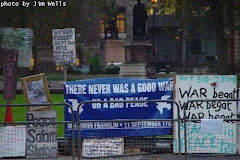In a previous blog entry I spoke of how I think it is often useful to BEAM LOVE. The M in BEAM might stand for "Mission" as suggested by Mara or "Meditate often" as I suggested in that blog entry and in "Keeping Cool Under Pressure." While I think having a mission or purpose is very important, I am inclined to think that meditating often is even more important.
So, why do I think meditating often is so important? In my experience, meditation is much more than a way of achieving profound relaxation which is, indeed, often a significant benefit. In my experience, meditation can also be a method for connecting with an expanded or perhaps universal consciousness that has awareness and understanding of far more than my own limited experiences can possibly allow me to perceive, much less understand. Am I saying that by meditating I can access answers to otherwise impossible conundrums? Perhaps, but not exactly. There have been times when after meditation, I have seen a problem from a different angle or, if you will, with new eyes. It has often seemed as though my capacity for attention to details that were previously overlooked has been enhanced and my ability to see previously unseen patterns has emerged like lighting a candle in the darkness.
Several years ago I traveled to Texas to the Southwest Vipassana Meditation Center where a group of other folks of all ages and backgrounds and I were somehow drawn for a 10-day, silent retreat. It is an isolated spot about 40 miles from Dallas. As I recall, the first three days were very difficult for me, primarily because I wanted to do it right and because my mind could not seem to get quiet despite meditating from 4:30 in the morning until 8:00 in the evening with breaks for meals and toileting. There was instruction given in the evening by the teacher from 8:00 until 9:00. On about the fourth day, though, my mind chatter began to dissipate. I found that I could breathe in from the top of my head and breathe out through the bottom of my feet, or the reverse. As my breath moved, I noticed not only the sensations in and around my nose and upper lip but also the sensations that emanated from the surface of my entire body, one section at a time as my attention moved to a particular body aspect. If there was an itch on the side of my left knee, I would notice it when my breath passed my knee and not notice it again until the next breath again passed that same spot. Other thoughts were strangely absent most of the time. It was as if my mind was in neutral while my attention was nearly totally focused on breathing and on the surface sensations of my body. It was as if my mind had slowed almost to a stop. The effect was very peaceful. I felt at once both open to all that was within and all that was without; almost totally free of judgment.
Upon subsequent exposure to people in the Dallas International Airport, I felt more in an observation mode than was usual for me. As I now recall it, just being, without judging, seems the best description of my state at that time. When my son picked me up at the airport in Raleigh, he said he had never known me to appear so peaceful.
Following that retreat, I continued to meditate often but not for so long each day. It was, however, long enough to provide a kind of maintainable equilibrium for quite awhile. Gradually, however, I spent less and less time in meditation and more and more time immersed in the day-to-day pressures that seem to me to accompany most of us on our journeys from birth to death, all of them usually amounting to very little when remembered from a distance.
So, does the practice of meditation really matter? As I see it, meditating often is a way of experiencing internal and external validation and acceptance and a way of being sufficiently peaceful that listening to learn all that Universal Mind has to teach becomes a greater possibility. For me, meditating often definitely matters.
And how hard is it to meditate? My perspective now is that meditation is as easy as paying attention to my breathing. It doesn't require special agility or equipment. Many different techniques can be very effective at bringing about the various benefits. A very simple approach that I like is to sit quietly with my head and spine erect, both my feet firmly on the floor, my eyes gently closed, my hands placed either on my knees, in my lap, or on my chest, one over the other, while breathing in through my nose and out through my mouth. As I breathe in, I think only "in;" and as I breathe out, I think only "out." This can be done for 5 minutes or much longer, and my experience is that just doing it once or twice a day is more important than the length of each session.
How does my description of my experiences with meditation compare with yours? Please consider sharing your own meditation experiences and the meaning your meditation practice has had for you. From my perspective, there is so much we can learn from one another.
More on Vipassana can be found at http://www.dhamma.org/ or on meditation in general at http://www.creativebalance.com/meditation.html.















